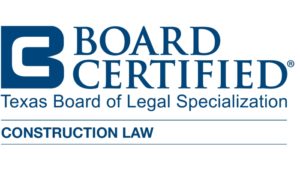As with most areas of the law, the Bankruptcy Code is comprised of a complex set of statutes that can seem daunting and prove challenging for even the most experienced practitioners. Lovein Ribman, P.C. has built its reputation on providing our clients with cost-effective, creative, and efficient solutions to some of the most challenging legal problems in the industry. Whether you are a debtor considering filing bankruptcy, a business in need of reorganization or restructuring advice, or a creditor in need of representation and guidance throughout the bankruptcy process, the attorneys at Lovein Ribman, P.C. are experienced, knowledgeable, and capable in handling insolvency-related matters whenever they might arise. To discuss your options, contact us by submitting the Contact Form or by calling us at (888) 368-2483 to talk to one of our bankruptcy attorneys.
Bankruptcy Overview
Generally, bankruptcy is the court-supervised process for the orderly discharge of debts by a debtor while simultaneously ensuring the maximum recovery for the debtor’s creditors. All bankruptcies are governed by federal statute, known as the Bankruptcy Code. In most cases, a successful bankruptcy is accomplished by either the liquidation of the debtor’s non-exempt assets, restructuring of indebtedness and confirmation of a reorganization plan, or for consumers, the confirmation of a repayment plan. Upon completion of the bankruptcy, the court will enter an order discharging the debtor’s debts that were incurred before the debtor filed for bankruptcy.
For both individuals and businesses, filing for bankruptcy can provide a “fresh start”; it is a tool that is available to not only provide debt relief and protection, but can be the lifeline that a struggling company needs to rehabilitate its business operations during tough times or to renegotiate the terms of an unduly burdensome contract, lease, or other debt with an otherwise stubborn creditor. In nearly every business sector and industry, bankruptcy and corporate reorganizations are ever-present realities that most companies must deal with at some point or another while operating.
Advantages to Filing Bankruptcy
One of the biggest benefits that a debtor has when filing bankruptcy is the imposition of the “automatic stay.” Section 362 of the Bankruptcy Code provides that an automatic injunction is created and goes into effect immediately upon the filing of a bankruptcy petition. This “automatic stay” is a court order that prohibits creditors from continuing efforts to enforce or otherwise collect their debts, including foreclosing property, evicting a lessee, repossessing a vehicle, and many other actions they might otherwise legally be able to take under state law. This can also be one of the most challenging and potentially risky issues a creditor may face when a debtor files bankruptcy. There can be serious repercussions for creditors who violate the automatic stay, even punitive damages and sanctions for those who do so knowingly or in bad faith.
In the context of a Chapter 11 reorganization, the orderly, court-supervised framework for the restructuring of indebtedness as well as the rehabilitation of the debtor’s business are strong advantages to filing bankruptcy. Additionally, the ability to bind dissenting creditors to a reorganization plan means that creditors and other parties in interest may become bound to the terms of a reorganization plan that they might not otherwise agree to outside of bankruptcy. Another important aspect is the bankruptcy court’s power to force persons to take actions as necessary to carry out the terms of a confirmed plan of reorganization that they might not otherwise take outside of bankruptcy, such as executing a lien release. For creditors, the court’s ability to impose controls on the management of the debtor is also advantageous.
Chapter 7 Bankruptcy
A Chapter 7 bankruptcy is a liquidation proceeding. Under Chapter 7, a bankruptcy trustee is appointed to administer the bankruptcy case, in which he or she gathers all of the debtor’s non-exempt assets and sells them. The proceeds are then used to pay the claims of the debtor’s creditors. In many cases, unsecured creditors receive pennies on the dollar for their claims—if they receive anything at all. Once a Chapter 7 case has been completed, the bankruptcy court enters an order discharging the debtor’s pre-filing debts and obligations—subject to some exceptions (e.g., fraud). In the case of a business debtor, upon completion of a Chapter 7 case, the company will legally cease to exist.
Chapter 11 Bankruptcy
A Chapter 11 bankruptcy is a reorganization proceeding in which the debtor prepares and proposes a plan to restructure its debts and operations with the goal of repaying its creditors and becoming profitable again. In doing so, it must submit and obtain approval of a reorganization plan from its creditors and the bankruptcy court. Upon confirmation of a reorganization plan by the bankruptcy court, the debtor’s pre-filing debts are discharged and the debtor is required to make plan payments and is bound by the provisions of the plan of reorganization. Unlike a Chapter 7, under a Chapter 11, an independent bankruptcy trustee is not typically appointed to administer the case. Rather, Section 1107 of the Bankruptcy Code places the “debtor in possession” or sometimes “DIP” in the position of a fiduciary to administer the case. Upon completion of the reorganization, the bankruptcy court will enter a final decree stating that the case has been “fully administered.”
Chapter 11 of the Bankruptcy Code was designed to provide a debtor and its creditors a mechanism for dealing with the debtor’s financial difficulties. The fundamental purpose and goal of a successful Chapter 11 is to prevent the debtor from going into liquidation, thus taking advantage of the company’s going concern value as well as avoiding the accompanying negative effects of liquidation, such as loss of jobs, goodwill, patents, trademarks, customer loyalty, and potential misuse of economic resources that are associated with liquidation. Chapter 11 provides a debtor the opportunity to rehabilitate its company and value, rather than sell off the company’s assets piecemeal. This goal has been accomplished by some of the world’s largest corporations and companies.
When it comes to financial reorganization, restructuring, and reorganization, there is no one size fits all approach. Our team creates specially-tailored and customized solutions for clients faced with the challenges of in and out-of-court restructurings, workouts, and liquidations, to identify successful strategies and winning options for confronting challenging situations, such as non-performing loans and distressed asset situations. From commencement to completion, our goal is to maximize return for our clients, minimize risk of loss, and prevent waste of valuable financial resources.














